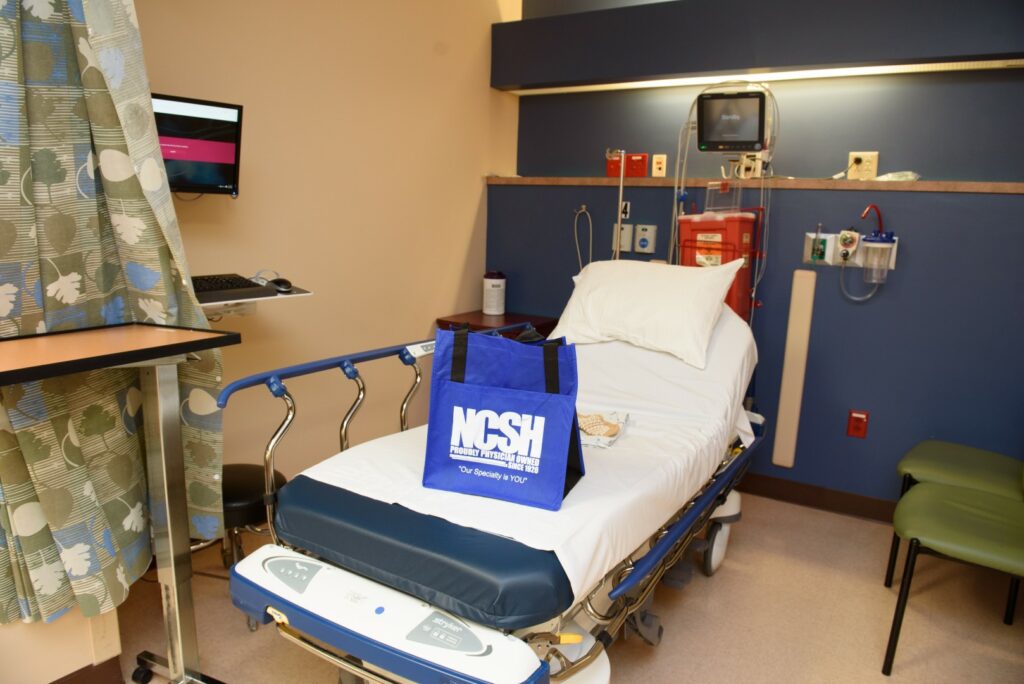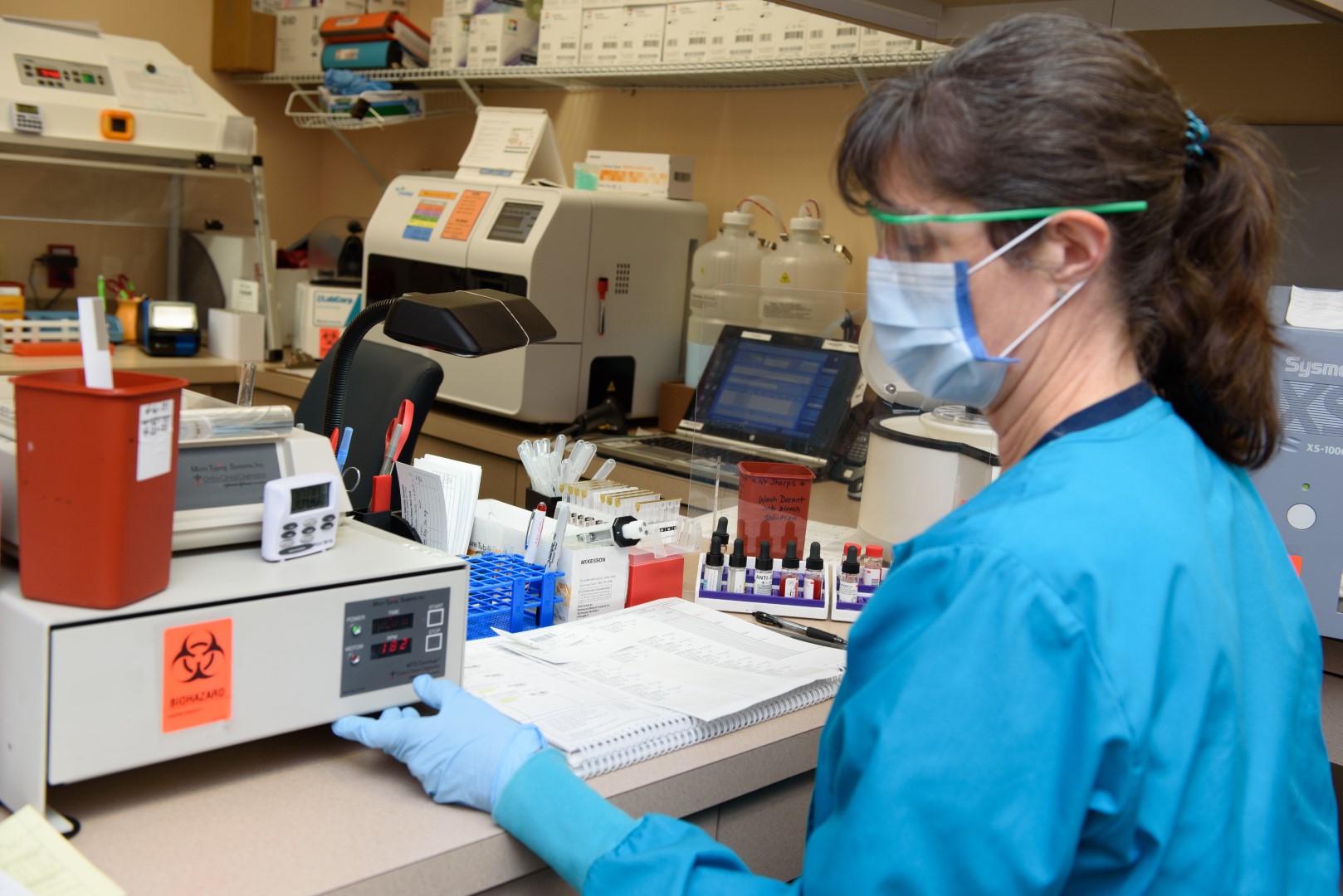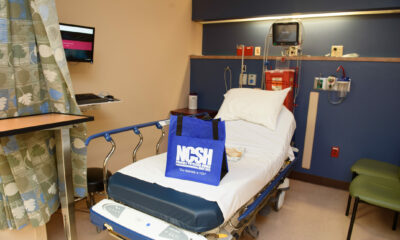Access your own patient portal, provided by NCSH.
General Surgery
What Is a Muscle Biopsy? 8 Things to Know
Wed, Mar 27, 2024

If you have unusual muscle symptoms that cannot be easily explained, you could benefit from a muscle biopsy. This relatively simple procedure helps specialists determine the underlying cause of muscle pain and weakness, rule out certain conditions, and develop treatment plans.
What Is a Muscle Biopsy?
A muscle biopsy is a medical procedure that involves removing a muscle tissue sample for examination. The biopsy is sent to a laboratory, where it is analyzed by a pathologist to diagnose myopathy, muscle conditions, or diseases.
What Is a Muscle Biopsy Used For?
A muscle biopsy procedure is a valuable tool in understanding and managing muscle-related conditions. It helps physicians make an accurate diagnosis of neuromuscular diseases, such as muscular dystrophy, inflammatory myopathies, and metabolic disorders.
A tissue sample can also provide information about the extent of muscle damage or inflammation, aiding in the determination of the appropriate treatment plan.
Additionally, a muscle biopsy can help differentiate between various muscle disorders and assist in monitoring the progression of a muscle disease over time.
Who Needs a Muscle Biopsy?
 This surgical procedure is typically recommended for individuals who are experiencing unexplained muscle weakness, pain, or abnormalities in muscle function. For example, it is commonly performed on athletes who are suspected of having muscle disorders or injuries, as well as individuals with genetic muscle diseases, autoimmune disorders, or metabolic disorders.
This surgical procedure is typically recommended for individuals who are experiencing unexplained muscle weakness, pain, or abnormalities in muscle function. For example, it is commonly performed on athletes who are suspected of having muscle disorders or injuries, as well as individuals with genetic muscle diseases, autoimmune disorders, or metabolic disorders.
Additionally, a muscle tissue sample may be necessary to guide treatment decisions and determine the effectiveness of certain therapies.
Individuals experiencing persistent muscle-related symptoms who are not responding to conventional treatments may benefit from a muscle biopsy to identify the underlying cause of their condition.
What Can Be Diagnosed with a Muscle Biopsy?
This diagnostic tool can help identify a wide range of muscle-related conditions, such as:
- Muscular dystrophy
- Amyotrophic lateral sclerosis (ALS)
- Toxic myopathy
- Inflammatory myopathy
- Trichinosis
- Toxoplasmosis
- Myasthenia gravis
- Myositis
- Inclusion body myositis
- Genetic or congenital myopathies
Who Performs a Muscle Biopsy?
A muscle biopsy is typically performed by a general surgeon. The procedure may also involve other health care professionals, such as nurses or surgical technicians, who assist in preparing the patient and providing support during the biopsy.
What Happens During a Muscle Biopsy?
There are two ways to take a muscle biopsy. Both muscle biopsy techniques are conducted using local anesthetic to numb the area to be biopsied.
Needle Biopsy
During a needle biopsy, the surgeon inserts a needle into the muscle tissue. A small piece of tissue remains in the needle as it is removed. Sometimes it takes more than one needle insertion to get an adequate muscle sample.
Open Biopsy
If the surgeon needs a larger amount of tissue, they will perform an open biopsy. They make an incision deep enough to reach and remove a piece of muscle tissue. They then close the incision with sutures or adhesive strips.
Is a Muscle Biopsy Painful?
You shouldn’t experience any pain during a biopsy of muscle tissue other than a slight sting or burn when you receive the injection of local anesthetic. During an open biopsy, you may feel a tugging sensation as the surgeon cuts out and removes a muscle sample.
How Long Does It Take?
The duration of a muscle biopsy can vary depending on several factors, including the complexity of the case and the expertise of the health care provider performing the procedure. In general, a muscle biopsy can take anywhere from 30 minutes to an hour. This includes the time needed for preparation, administration of local anesthesia, and the actual extraction of the tissue sample.
After the biopsy, the sample is sent to a laboratory for analysis, and it can take several days or weeks to receive the results. It is important to note that the exact duration may differ depending on individual circumstances.
Your surgeon will provide instructions on how to care for an incision wound and details about recovery from the procedure. They will also tell you how and when to expect results from the lab. To learn more about neuromuscular disorders and how we evaluate, diagnose, and treat them at NCSH, set up an appointment to see one of our specialists.
RELATED NEWS

Why Can’t You Eat Before Surgery? Find Out the 3 Important Reasons
If you’re having surgery, you probably have questions, such as why can’t you eat or drink before surgery. NCSH has your answer.
Continue Reading

Frequently Asked Questions About General Surgery
The Top 7 Frequently Asked Questions About General Surgery
Continue Reading

Skin Graft Healing Stages—What You Need to Know
Skin grafting for burns and other challenging wounds is a procedure that uses donor tissue, often from the patient’s own body. If you need a skin graft, your surgeon will explain the surgery, how the…
Continue Reading
Stay Current
Educational Articles & More
View News & Press